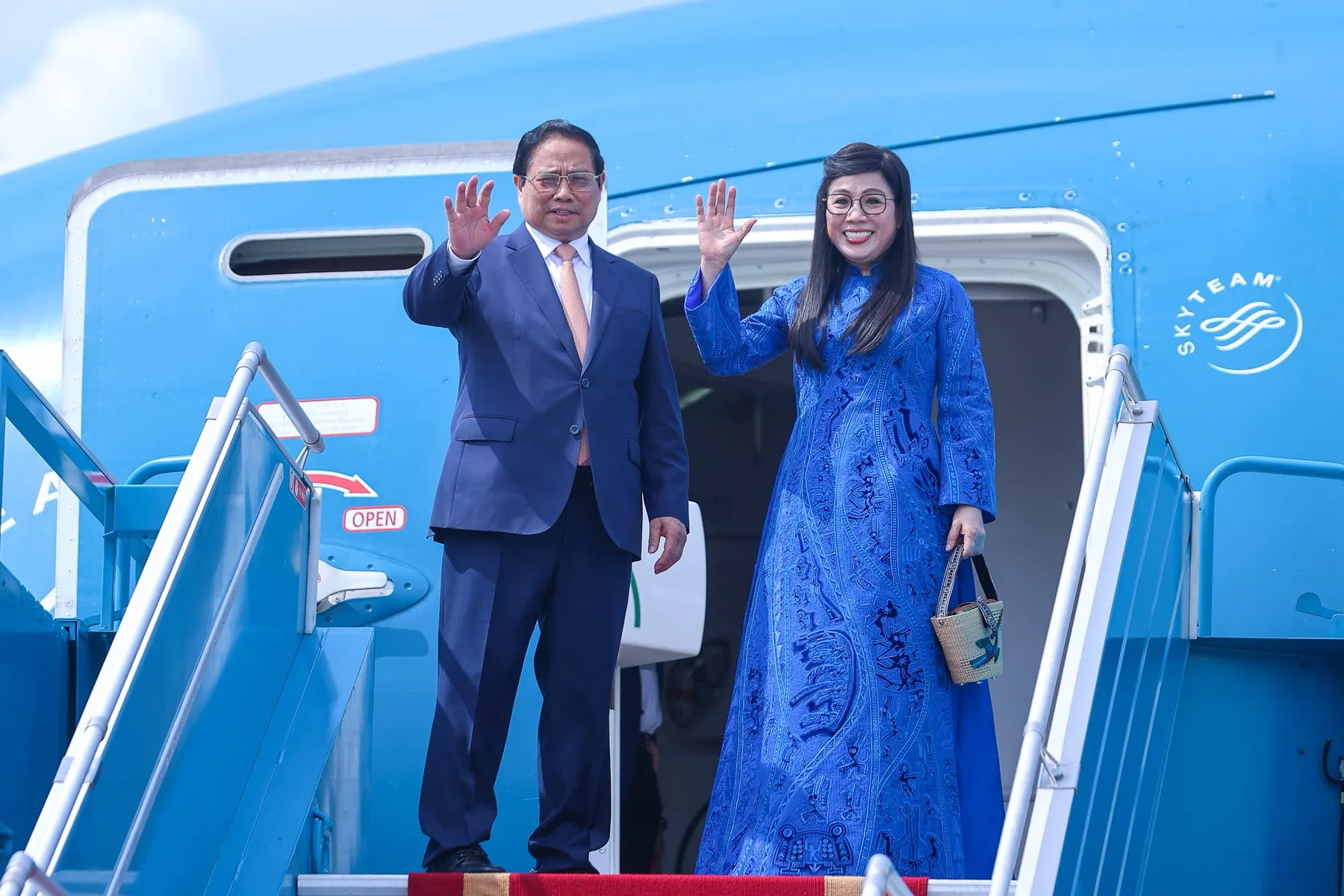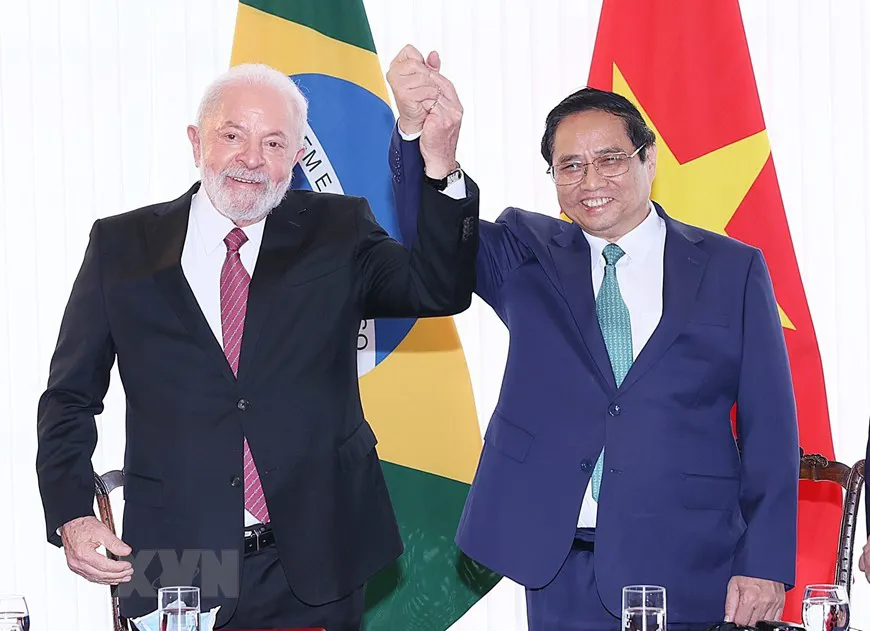Vietnam at BRICS: Strengthening voices in global governance
Partner status positions Vietnam as a bridge between Southeast Asia and the Global South, amplifying its voice in shaping a multipolar world order rooted in law and equity.
Vietnam’s Prime Minister Pham Minh Chinh has departed for Rio de Janeiro to attend the expanded 17th BRICS Summit on July 6–7. This will be Vietnam’s first time participating in the summit as a BRICS partner country, reflecting its strategy of diplomatic diversification, economic integration, and multilateral

Vietnam’s Prime Minister Pham Minh Chinh and his spouse Le Thi Bich Tran leave Hanoi on July 4 for BRICS summit. Photo: VGP
The BRICS is a multilateral cooperation framework consisting of ten emerging economies - Brazil, Russia, India, China, South Africa, Egypt, Ethiopia, Indonesia, Iran, and the United Arab Emirates - that is gaining influence in economic and political affairs.
Vietnamese Deputy Foreign Minister Nguyen Minh Hang described the summit as a key platform for Vietnam to demonstrate its commitment to peace, stability, cooperation, and development, as well as to deepen ties with Brazil and expand economic, trade, and investment links in regions with high potential.
She said that by attending as a BRICS partner country, Vietnam reaffirms its role as a responsible contributor to multilateral mechanisms and gives more weight to the voices of developing nations in global governance.
The summit’s theme “Strengthening Global South Cooperation for More Inclusive and Sustainable Governance” aligns with Vietnam’s active foreign policy of independence, self-reliance, multilateralism, and diversification.
Meanwhile, Brazilian Ambassador to Vietnam, Marco Farani, believed that Vietnam’s participation would help highlight the importance of BRICS and add significant value to vital issues like energy transition, financial cooperation, and innovation access.
He praised Vietnam as a dynamic, stable, and growth-oriented partner whose admission strengthens BRICS as a Global South development bloc.
“Vietnam’s development goals align with BRICS practices, supporting multilateral cooperation. By attending the summit, Vietnam can boost supply chains, deepen environmental and energy transition partnerships, and affirm its commitment to global peace, stability, and inclusive governance,” he told local media.
Sharing this view, the Vietnamese Ambassador to Brazil, Bui Van Nghi, said that Vietnam’s new BRICS status enhances its global standing and deepens collaboration in trade, investment, infrastructure, healthcare, and climate action.

Vietnam’s Prime Minister Pham Minh Chinh (R) and Brazil's President Luiz Inácio Lula da Silva during Chinh's visit to Rio in September 2023. Photo: VNA
Scheduled agendas
BRICS accounts for 42% of the world’s population, 40% of the global economy, 23% of global GDP, and 18% of international trade.
At the summit, BRICS leaders will discuss six main themes at the summit: reforming peace and security architecture, health cooperation, international finance, climate crisis response, artificial intelligence, and institutional expansion.
Vietnam, as a rapidly emerging economy, expects to seek partnerships in green energy, climate resilience, and low-carbon development, which are key to its net-zero goals. The country also plans to showcase its success in pandemic management and poverty reduction as examples of effective governance in global forums.
Delegates will explore cooperation in high-tech sectors, including semiconductors, cybersecurity, AI, and digital transformation. This will help Vietnam benefit from BRICS-led technology networks. The agenda will also cover the strengthening of connectivity between Southeast Asia and Latin America, especially in agriculture, trade, and energy.
This will give Vietnam the opportunity to access new financial resources, expand technology and knowledge exchange, and secure multilateral recognition.
This occasion, according to Ambassador Marco Farani, will notably help Vietnam deepen diplomatic ties with Brazil through collaboration in trade, science, energy, and culture.
In 2024, two-way trade reached nearly US$8 billion and targeted to hit $15 billion by 2030.
During his visit, Prime Minister Chinh will engage in both multilateral activities at the summit and bilateral meetings with BRICS leaders and those from other emerging economies.
“Vietnam’s attendance is an opportunity to mobilize international resources in support of its national development goals,” said Deputy Minister Hang.
Vietnam has indeed made a remarkable transition from observer to BRICS partner country.
This status positions Vietnam as a bridge between Southeast Asia and the Global South, ready to incorporate emerging market agendas and innovations into its development framework. The move also gives Vietnam a stronger voice in shaping a multipolar world order respectful of international law and equity.
Its BRICS partnership debut promises to strengthen its role in inclusive governance, sustainable development, and multilateral solidarity.








